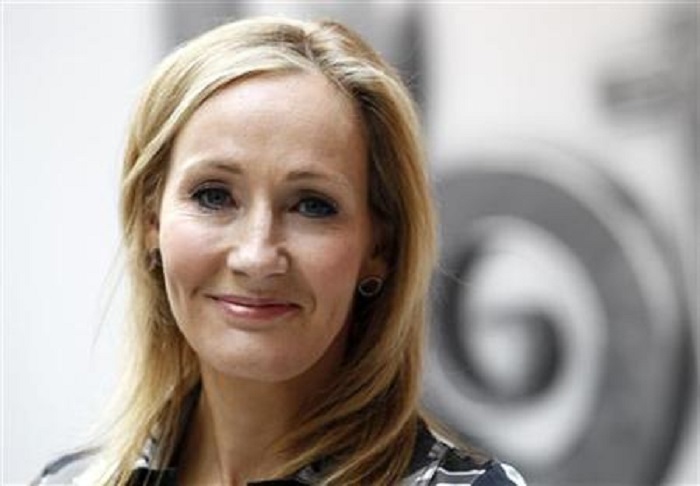JK Rowling says critics 'profoundly misunderstood' her criticism of transgender ideology

Author J.K. Rowling says critics accusing her of being "transphobic" over her past comments on the push to allow trans-identified individuals into sex-segregated spaces for women "profoundly" misunderstand her viewpoint.
The writer of the Harry Potter book series, who has said that she still supports trans-identified people, has faced backlash from activists for expressing concern that "gender-inclusive language" and the erasure of single-sex spaces are harmful to women.
A new podcast from The Free Press titled "The Witch Trials of J.K. Rowling" premieres next Tuesday. The author plans to share various personal details about her life, including her reason for speaking out.
"What is interesting over the last 10 years, and certainly over the last few years, two, three years, particularly on social media, [are critics who say], 'you've ruined your legacy,' 'oh, you could have been beloved forever, but you chose to say this,'" she recalled in a teaser clip from the podcast. "I think you could not have misunderstood me more profoundly."
The podcast host is Megan Phelps-Roper, a former member of the Westboro Baptist Church, a controversial congregation known for inflammatory messages against the LGBT community.
According to a Tuesday essay written by Phelps-Roper for The Free Press, she reached out to Rowling believing that her experience in the church would enable her to connect with the author.
Phelps-Roper said she could empathize with Rowling, having faced "intense hatred" but later witnessed how "good-faith conversation" can break through divides.
"But the story of J.K. Rowling is not just the story of one author, or one woman, or one issue," Phelps-Roper wrote. "It is a microcosm of our time. It's about the polarization of public opinion and the fracturing of public conversation."
"It's about the chasm between what people say they believe and how they're understood by others," she continued. "It's about what it means to be human — to be a social animal who feels compelled to be part of a tribe. And it's about the struggle to discern what is right when our individual view of the world is necessarily limited and imperfect."
In a preview of the conversation between the two women, Rowling stated: "I never set out to upset anyone."
"However, I was not uncomfortable with getting off my pedestal," she stated.
The popular author began to face controversy in 2020 related to a series of tweets asserting that biological sex "is real."
As The Chrisitan Post reported, Rowling published an essay clarifying her stance as she also faced pushback for supporting Maya Forstater, a tax researcher who lost her job for claiming that biological men identifying as female are not women.
In her essay, Rowling said she stepped back from Twitter for many months before and after tweeting her support for Forstater and returned to the platform to promote her book. Upon her return to social media, she was faced with progressive activists who assumed "a right to police my speech." They accused her of hatred and being a "Trans-Exclusionary Radical Feminist."
"In practice, a huge and diverse cross-section of women are currently being called TERFs and the vast majority have never been radical feminists," she wrote. "Examples of so-called TERFs range from the mother of a gay child who was afraid their child wanted to transition to escape homophobic bullying, to a hitherto totally unfeminist older lady who's vowed never to visit Marks & Spencer again because they're allowing any man who says they identify as a woman into the women's changing rooms. Ironically, radical feminists aren't even trans-exclusionary — they include trans men in their feminism, because they were born women."
"But accusations of TERFery have been sufficient to intimidate many people, institutions and organisations I once admired, who're cowering before the tactics of the playground," she added. "'They'll call us transphobic!' 'They'll say I hate trans people!' What next, they'll say you've got fleas?"
Rowling added that she is concerned with the "huge explosion in young women wishing to transition" and "the increasing numbers who seem to be detransitioning (returning to their original sex), because they regret taking steps that have, in some cases, altered their bodies irrevocably, and taken away their fertility."
The fantasy author shared how she felt "mentally sexless" and uncomfortable about her body while growing up. Noting that there was no "realistic possibility" of becoming a man in the 1980s, Rowling said that books and music helped her overcome the judgment and mental health issues that make many teenage girls insecure about their bodies.
"Fortunately for me, I found my own sense of otherness, and my ambivalence about being a woman, reflected in the work of female writers and musicians who reassured me that, in spite of everything a sexist world tries to throw at the female-bodied, it's fine not to feel pink, frilly and compliant inside your own head; it's OK to feel confused, dark, both sexual and non-sexual, unsure of what or who you are."
She asserted that a woman is "not an idea in a man's head," condemning the inclusive language that trans activists view as "appropriate and kind" as "hostile" and "degrading," particularly for women who have been on the receiving end of slurs from violent men.
"I refuse to bow down to a movement that I believe is doing demonstrable harm in seeking to erode 'woman' as a political and biological class and offering cover to predators like few before it," she wrote. "I stand alongside the brave women and men, gay, straight and trans, who're standing up for freedom of speech and thought, and for the rights and safety of some of the most vulnerable in our society: young gay kids, fragile."
Samantha Kamman is a reporter for The Christian Post. She can be reached at: samantha.kamman@christianpost.com. Follower her on Twitter: @Samantha_Kamman





























